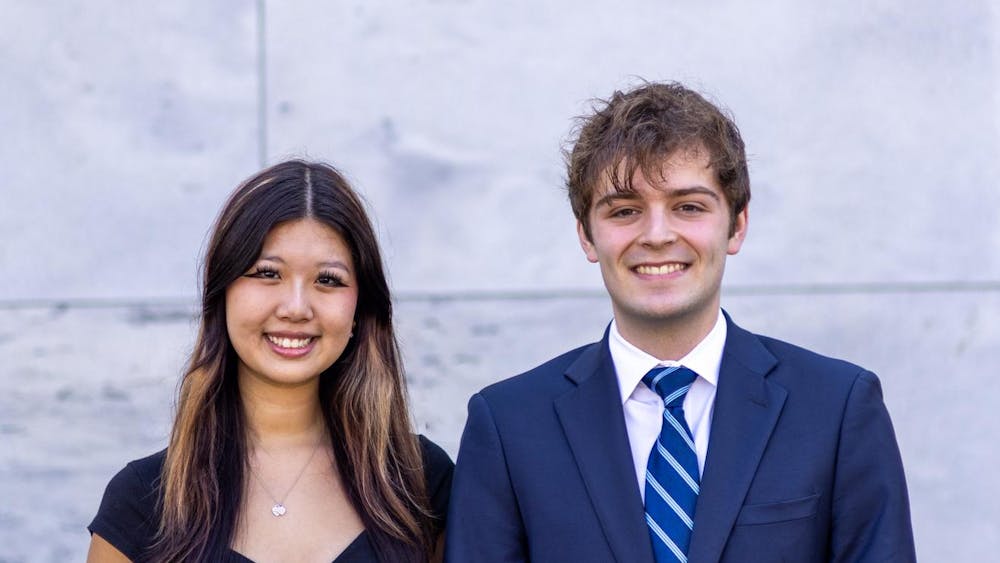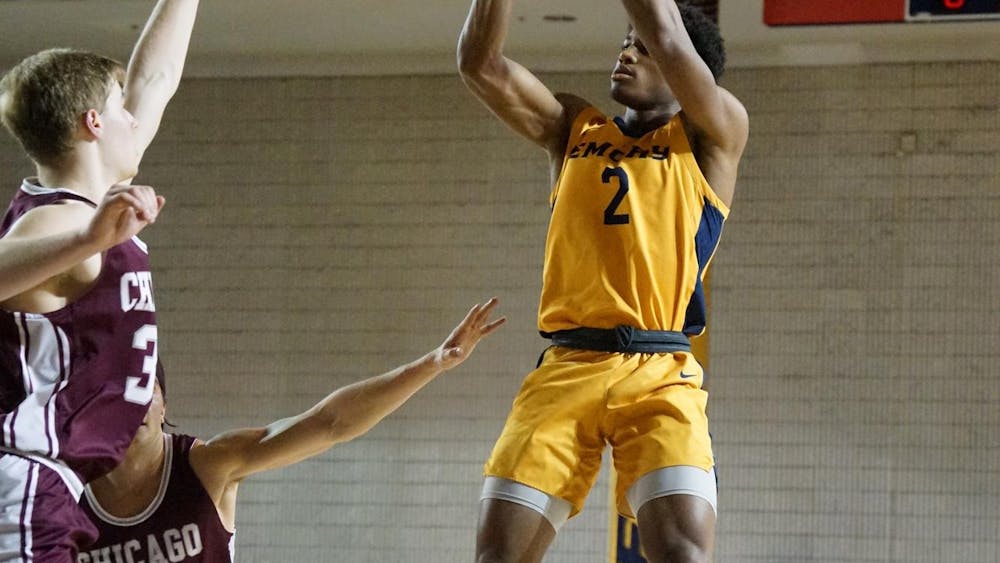As Americans across the country continue to hold demonstrations for racial justice in the wake of police killings against Black people, other related movements have been born from the keyboard: racial reckonings within classrooms. Acts of protests have taken many forms, but on Emory’s campus Black students and faculty alike shared stories of racial discrimination and double standards at Emory.
Charles Howard Candler Professor of African American Studies Carol Anderson and Asa Griggs Candler Professor of Law Dorothy Brown were among the Black Emory academics who tweeted about their experiences of academic discrimination on campus. Brown declined an interview and Anderson did not respond to multiple requests for comment.
On June 8, Brown tweeted, “I was reprimanded by the Dean for advocating that the hiring committee I was on interview a prospective black applicant. The Dean said it was because I was ‘engaging in behavior inconsistent with community norms’ I replied: Ain't I part of the community? #BlackInTheIvoryTower.” It is unclear which dean Brown is referring to.
I was reprimanded by the Dean for advocating that the hiring committee I was on interview a prospective black applicant. The Dean said it was because I was "engaging in behavior inconsistent with community norms" I replied: Ain't I part of the community? #BlackInTheIvoryTower
— Dorothy A Brown (@DorothyABrown) June 8, 2020
“We understand how painful it is for students, faculty and staff to share their personal stories of racism and discrimination,” Assistant Vice President of Communications and Public Affairs Laura Diamond wrote in a statement to the Wheel. "These accounts show the university has much more work to do to dismantle structural racism and make sure all members of the Emory community feel welcome and respected.”
On June 6, doctoral candidate at the University of Texas at Austin Joy Melody Woods became the first person to tweet out “#BlackintheIvory,” using the hashtag to share her stories of racial discrimination on Austin’s campus.
Although Woods was the first to use the hashtag, Assistant Professor in the Department of Communication at the University of Connecticut Shardé M. Davis came up with the idea. Davis told the Wheel that she and Woods had been corresponding about the protests and were “outraged by the assault on our bodies by paid servants,” referencing recent high profile police shootings.
Davis texted Woods late on June 6 asking her thoughts about the hashtag and the decision to start sharing stories of racism in academia. Woods noted that when Davis reached out, she was already mid-tweet.
Although Woods and Davis knew that their stories of discrimination were not unique for Black academics, they didn’t think the hashtag would go viral. By the next morning, they found the hashtag had been used by hundreds.
Narratives of discrimination were not just shared by Emory professors; tweets using #BlackintheIvory were also made by students.
Taylor Smith (20G, 23G), a master’s candidate in genetics and molecular biology, also used #BlackintheIvory to discuss her experience as a Black academic at a predominantly white institution.
On June 16, Smith tweeted, “Being #BlackInTheIvory is having an informational interview with a black woman PhD and crying in the first 5 mins because, without even knowing you, she knows your story ... Because it’s the same bs, generation after generation.”
Being #BlackInTheIvory is having an informational interview with a black woman PhD and crying in the first 5 mins because, without even knowing you, she knows your story....
— Tay? (@science_tay) June 16, 2020
Because it’s the same bs, generation after generation.
Smith outlined some of her concerns and experiences with racism and microaggressions at Emory. She said the curriculum within her department lacks ethical context about the medical history of harming Black and brown communities and noted the overall lack of diverse faculty.
“People are still very dismissive about the need of representation for students when white students can have many different mentors because they see themselves everywhere,” Smith said. “I’ve probably met all of the Black faculty members in the sciences here. None of which are in my field.”
Emory University currently employs 375 Black faculty members, which is 9.2% of the faculty.
A Black doctoral candidate in the Laney Graduate School, who requested to remain anonymous for fear of retaliation, echoed Smith’s sentiments.
The woman recounted an incident when she was discussing her post-graduation plans with a faculty member when he interrupted her, making a comment about how he “had to know” about the importance of diversity, equity and inclusion in her plans, and then proceeded to dismiss her aspirations.
The same faculty member later ignored her need for a mental health break after the killing of George Floyd and racially profiled other students, she said.
“It’s a system that disadvantages Black and brown students and faculty,” the student said. “It’s a systemic thing, systemic meaning the policies and procedures but also the attitudes and behaviors, like the resistance to change and the resistance to step back and reflect as a person.”
She urged Emory to actually manifest the oft-quoted values of diversity by listening to the Black community and creating meaningful change on its part.
“If you are so-called allies and have so-called diversity and inclusion then you need to step back and listen to us,” she said. “Get ready to get told that you can do better because you can.”
Doctoral candidate and Emory Black Graduate Student Association President Ayanna Jones (22G) garnered attention over her June 8 tweet, which read, “#BlackintheIvory is you finally mustering the courage to tell your advisor that you’re experiencing microaggressions in the research group only for your advisor to tell you that ‘the group members didn’t mean it’ or ‘you’re just over exaggerating.’”
#BlackintheIvory is you finally mustering the courage to tell your advisor that you’re experiencing microaggressions in the research group only for your advisor to tell you that “the group members didn’t mean it” or “you’re just over exaggerating”.
— Ayanna Jones (@onlyayanna_) June 8, 2020
Jones noted that while #BlackintheIvory has brought to light a national problem, Emory is still rife with racial microaggressions and implicit biases against Black students, and the University must assess its role in this larger reckoning.
“Emory is not immune to these issues and it's definitely at our front door,” Jones said. “It was traumatic … Even within institutions like academia, there’s still biases, there are still microaggressions, there is still racism. I think that until we decide to really talk about it and grapple with it and make actionable change, then I think nothing will change.”
Davis and Woods hope the hashtag will create actual policy at academic institutions across the country.
“That’s what I hope to see, that we are moving beyond conversations of, ‘Oh let’s talk about racism.’ No. We are actually addressing the people and the things and ways to see change,” Woods said.
Although Davis hopes this hashtag helps universities change for the better, she emphasized that the hashtag is most importantly a safe space for Black academics to share their stories.
“No one’s trying to capitalize off of Black stories and Black trauma,” Davis said.








